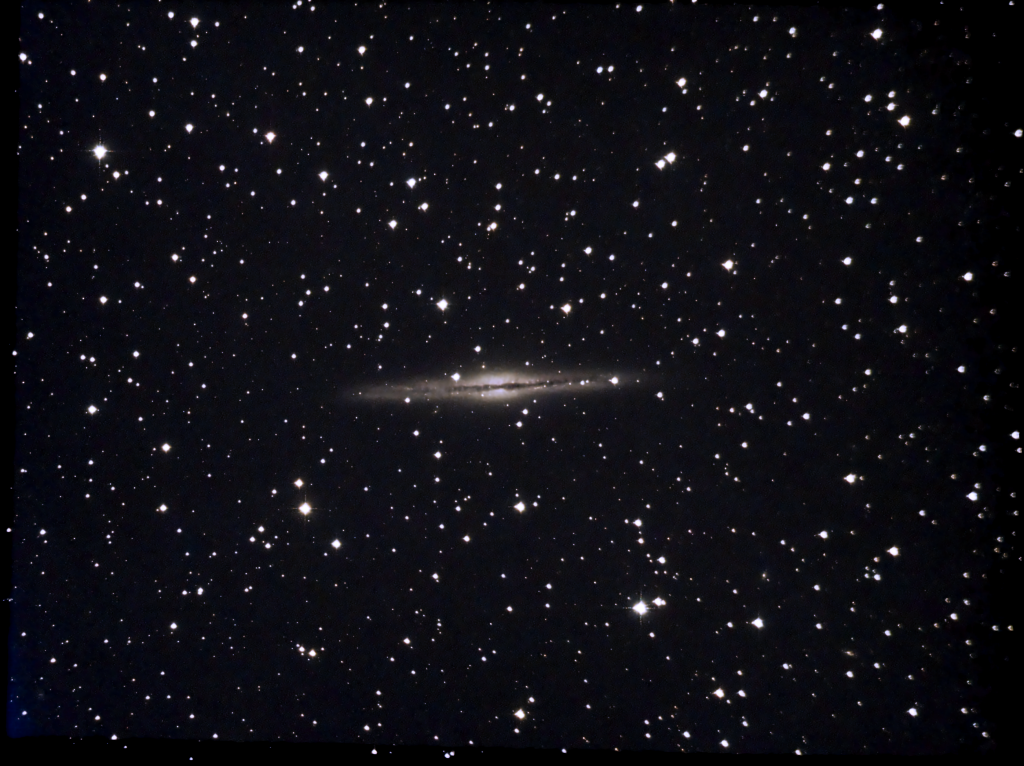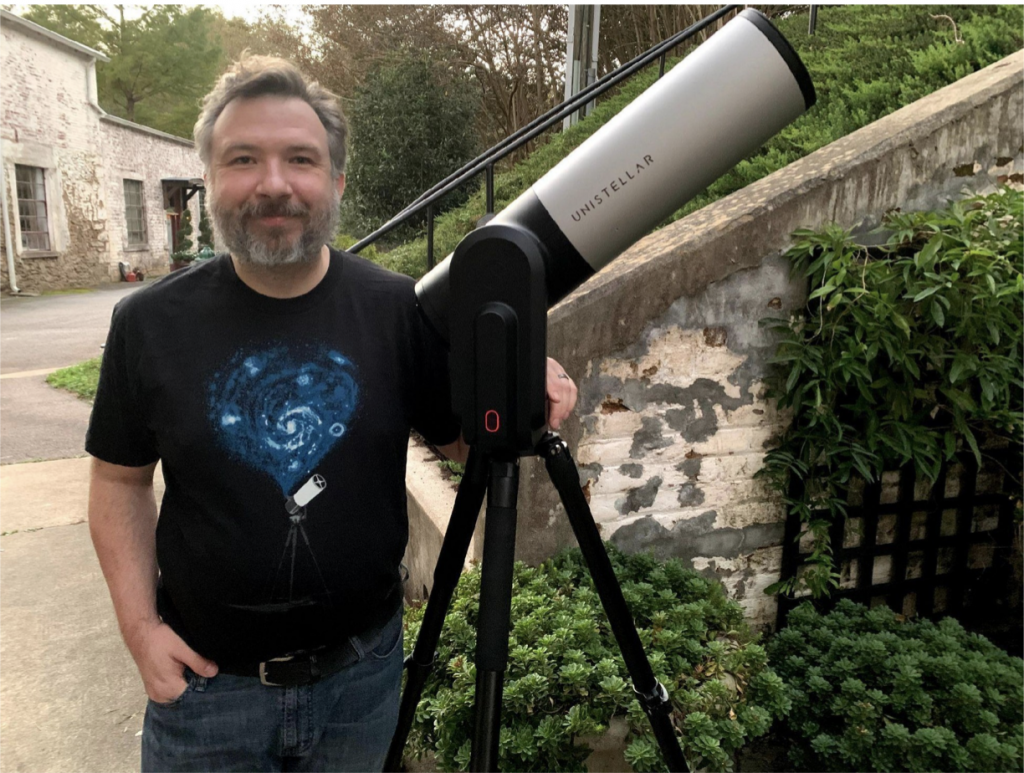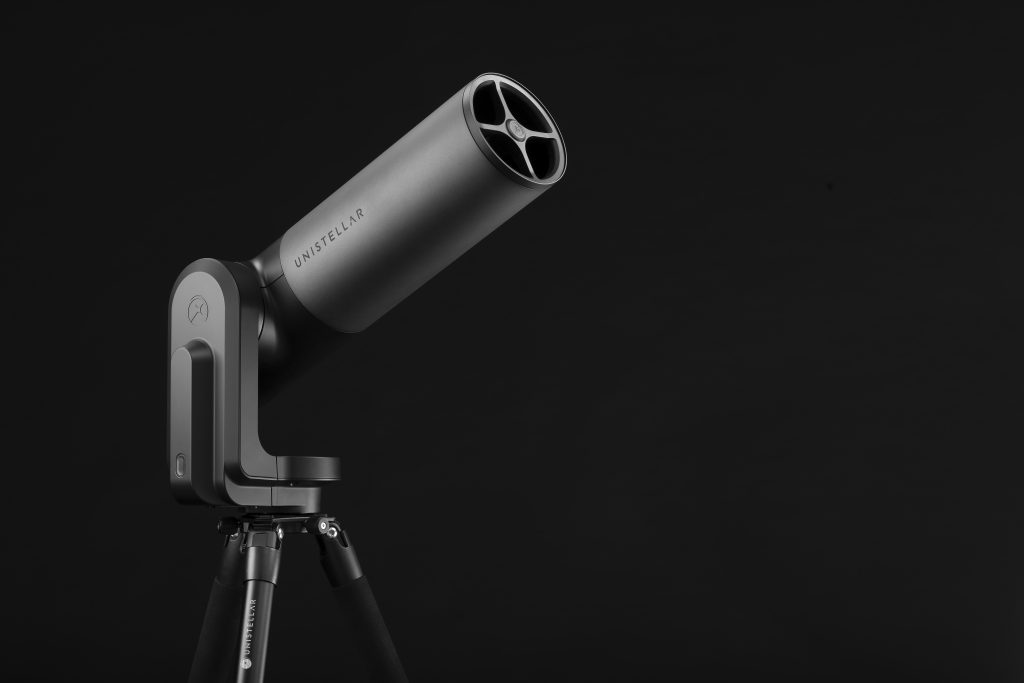Unistellar’s New eVscope eQuinox Telescope + Its Meaningful Community
With global camaraderie, amateur astronomers and citizen scientists track the cosmos using smart technology

Technology-driven telescope startup Unistellar’s new eVscope eQuinox is a powerful new digital astronomy tool, giving novices the power to discover the universe—even from a balcony in the city—while allowing advanced astronomers to quickly and frequently collect data. Better yet, eVscope eQuinox owners are inducted into Unistellar’s global community of space-lovers, receiving frequent inspiration, encouragement and citizen science opportunities.
The eVscope eQuinox is an app-connected scientific device that gazes into deep space and ports its observations directly through a user’s phone or tablet. The ideal telescope for amateurs—or as a second device for more experienced stargazers—the eVscope eQuinox is super-easy to operate (though dedicating time to their thoughtful YouTube tutorials equips people with an utmost understanding of the eVscope eQuinox’s capabilities).
Unistellar launched the original eVscope on Kickstarter, where it became the most successful telescope campaign. With the eVscope eQuinox, they once again pair their Autonomous Field Detection system with Enhanced Vision, their proprietary light accumulation technology, to bring the cosmos within reach quickly. In lieu of an eyepiece, up to 10 observers can simultaneously connect to the eVscope eQuinox using their smartphones or tablets, for a truly social space experience.
It’s through these connected devices that the self-aligning technology within the portable telescope is activated: they select an astronomical entity (like an asteroid or nebula) or event (like a distant planet moving in front of its star) and the eVscope eQuinox will locate and track it.

The app lets people take vibrant photos of what it’s viewing, as well. Captured images and the scenes presented on the screens of connected devices reveal the extent of the telescope’s power and technology, all thanks to sensors and a computer inside the wireless telescope. Through this clever tech, a meaningful connection to space is formed.
The eVscope eQuinox is just as easy to set up as the original eVscope. As a highly precise and powerful scientific instrument, backed by the SETI Institute, it also delivers the same results as the original eVscope even in cities—a tremendous breakthrough in the field. The ultra-sensitive light accumulation means there’s no need to seek out dark sky zones—any clear sky at night will do. Without the eyepiece, the eVscope eQuinox boasts a longer battery life (up to eight hours), and a larger storage card is featured in this model to more easily accommodate space intensive tasks, such as exoplanet transits. The entire cable-free unit conveniently stows into the accompanying backpack.

Unistellar’s burgeoning community of amateur astronomers lends even more value, supporting the device and its very easy to share data, observations and imagery. Its operators can transfer information from inside the app, talk in a dedicated Slack channel and communicate through a global Facebook group. Unistellar is always sharing information as well—from guides on how to host a “Star-b-Que” to where hobby astronomers should be looking in the summer. Community members like Rachel Knight (featured in a video below for her assistance in detecting an asteroid) and Justus Randolph are volunteer brand ambassadors now (in addition to their work outside of amateur astronomy) fueled by their passion for astronomy and their use of Unistellar’s telescopes.
Athens, Georgia-based Randolph is a quantitative research methodologist at Georgia Baptist College of Nursing at Mercer University. By day, he teaches students about statistics and research methods. By night, he contributes to citizen science. “Before I had my Unistellar eVscope, maybe every season or once every couple of months I would go outside with a telescope and look at the stars,” he tells us. “Now I find when the weather is clear enough, that I take my telescope out two or three nights a week.”

He attributes this motivation to the community: “If it were just about looking at deep-space objects—even with these beautiful astro-photography pictures that eVscope can take—I don’t think it would motivate me to get my telescope out every night,” he says. “Part of it is knowing that you have a purpose within different astronomy campaigns and you are coordinating with others. This gives me enough meaning that I can continue to get out and be under the stars and be awed by the universe.”
It’s more than stargazing; the eVscope eQuinox is an open door to citizen science. Hunt for asteroids like a planet-saving scientist from an action movie. Join the search for extra-terrestrial life by detecting planets outside of our solar system. Gather your friends to observe the latest supernova or comet discovery. Unistellar frequently shares fun and scientifically valuable citizen science opportunities, so that users across the globe, from all experience levels, have the chance to participate in the thrill and joy of discovery.

As many owners have now attested, the entrance into this world is neither intimidating nor unwelcoming; there’s tremendous camaraderie and support. “The community has enabled me to contribute to real scientific campaigns,” Randolph continues. “There’s a little bit of a learning curve at the beginning, as with any technology, but I remember when I got on and I started to do exoplanet transit observations, some of the users—even beyond the science team—would offer step-by-step advice about what I needed to do.”

“If you participate in an exo-transit observation, you’ll get a light curve image,” he says of the tactile photographic result. “There is some reward in seeing that this is your data and there’s a dip in the flux or the amount of photons being recorded at the time that affirms what the astronomers or physicists predicted.”

For joint observations, he says, “You can always count on the community to step in.” Randolph was attempting to hunt for a planet outside of our solar system with a fellow Unistellar owner in Germany. Both intended to observe a portion of a nine-hour transit and combine their data, but weather interfered. “We were able to put a query in the Slack channel to see if anyone else could observe this and within half-an-hour we had someone else willing to join.” Data from their cross-Atlantic light curve was ultimately submitted to the public AAVSO (American Association of Variable Star Astronomy) Exoplanet Database, so that a broad group of amateur and professional astronomers can access and use the information. It’s an empowering accolade for a passionate hobbyist, and anyone with an interest and a Unistellar eVscope eQuinox can do the same.

The Unistellar eVscope eQuinox can be purchased online for $2,999, plus $59 for shipping.
Images courtesy of Unistellar












